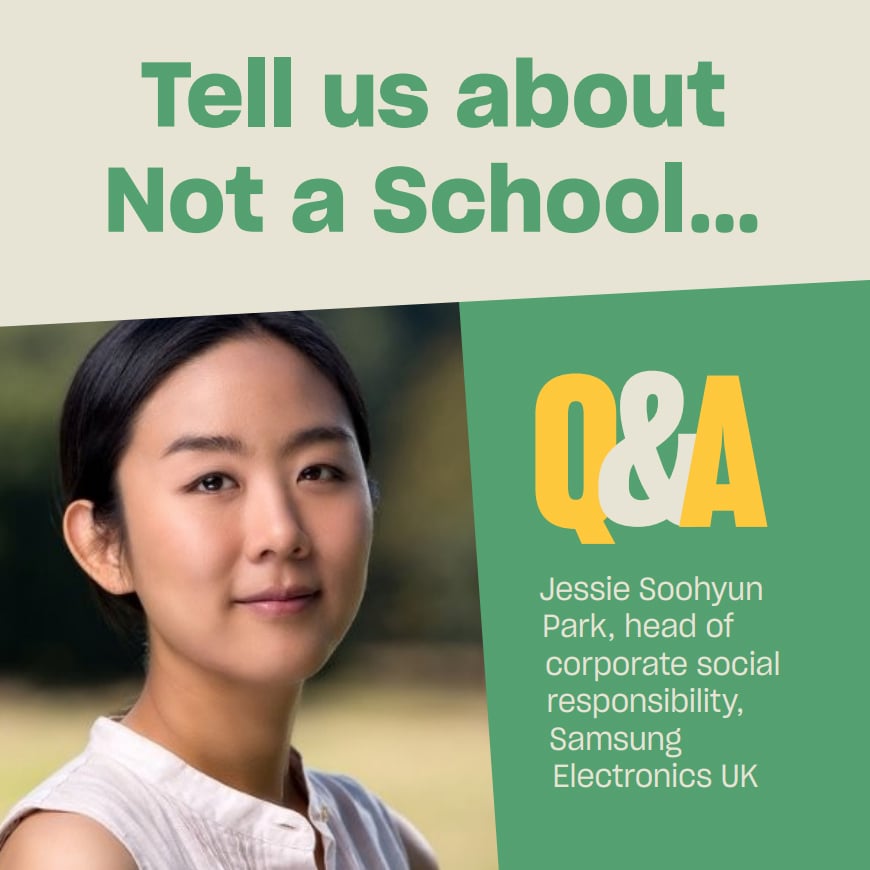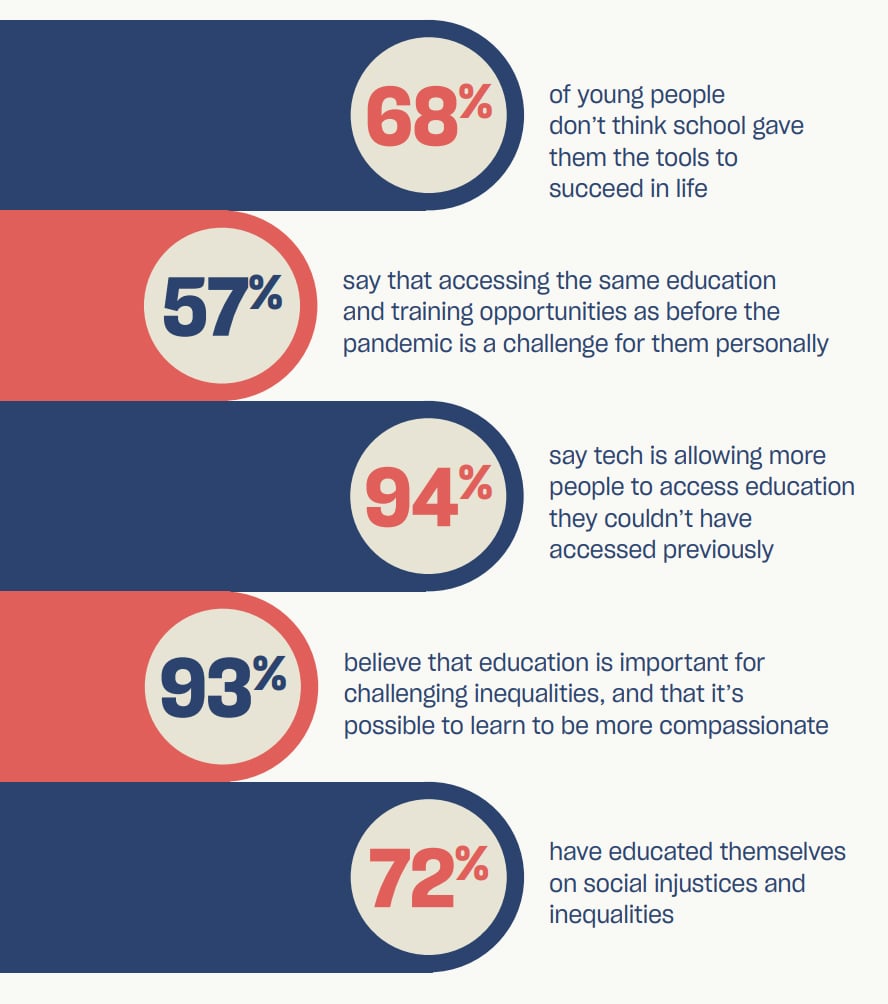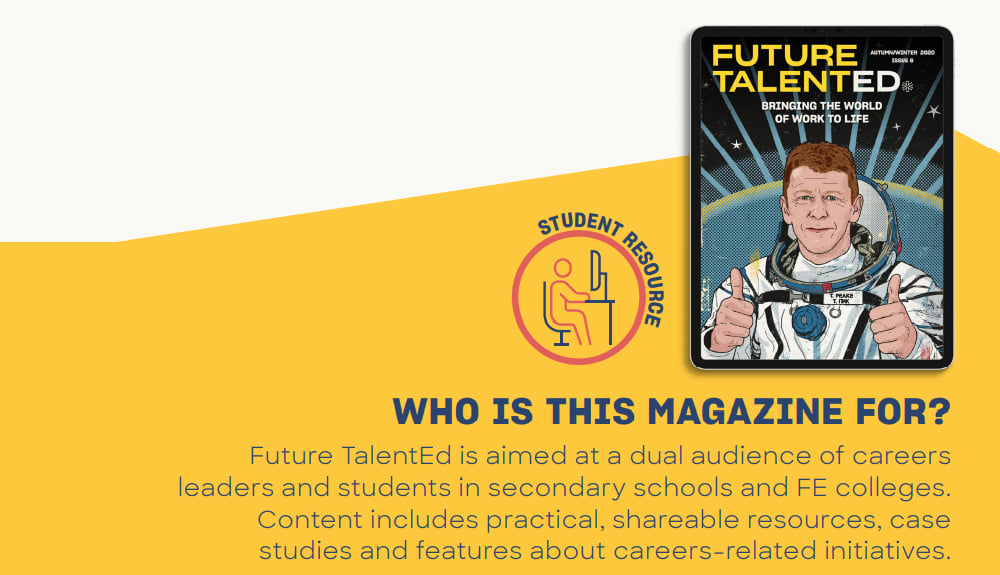Not a School is a newly online learning experience from Samsung that helps students use tech to solve social issues.
Created for young people by young people, Samsung’s Not a School programme inspires participants to pursue rewarding careers and to drive social change, empowered by compassion and enabled by technology.

What does Samsung’s ‘Not a School’ offer young people?
Not a School was created to offer young people an unorthodox and collaborative educational experience that gives them the tools to achieve their potential and help create a better world.
It launched in 2019, driven by our belief that education can help young people to become the next generation to pioneer positive social change. However, to drive positive change, we need to nurture a generation that is both empowered by compassion and enabled by technology. Traditional routes to training and education don’t always have this result for everyone.
How does the programme work?
This year, we introduced two different formats. The immersive course is a hands-on, collaborative experience with all sessions packed into a two-week programme; the self-led option is an interactive, digital learning experience where everyone can choose their own level of engagement throughout the year.
Both options have taken an entirely digital format this year, due to external circumstances and to make the programme more accessible; anyone from anywhere in the country can get the same amount of value and opportunity to participate.
Who is the Not a School programme for?
It’s free and open to 18- to 25-year-olds, although the self-led option is open to anyone over 13.
You don’t need to be a graduate or have a particular set of qualifications. Everyone, regardless of ability or background, deserves the opportunity to learn, unlock their creativity, discover new skills and achieve their potential. Everyone learns differently and has different commitments in their lives, which is another reason the immersive and self-led options work so well, because anyone who is passionate about making a difference can benefit from the course content in a format and timescale that suits them.
Why should young people and students take part?
We feel strongly that technology and education are key to creating opportunities for young people to tackle the social challenges they feel passionately about, so the structure of the programme is geared around developing four skills areas that will enable them to do so, whether through their chosen career paths or their personal lives: collaboration; communication; critical thinking, and creativity, as well as how to apply these to real-life situations.
Not everyone has someone in their network with the sort of experience to guide them in these areas. We are proud that Not a School gives money-can’t-buy access to a group of diverse and unorthodox mentors, activists, entrepreneurs and leaders who can inspire and empower course participants (or architects as we call them) to become the game changers of tomorrow.
Why is Not a School needed?
We conducted research among more than 2,000 18-25 year olds in the UK, finding that only one in 10 young people feel confident about their job prospects at the moment and that access to education and training is a major barrier.
Due to the recent economic downturn, more than 60% of young adults say 2020 has increased their anxiety around unemployment and personal development, both inside and outside the workplace.
Interestingly, two-thirds don’t think school gave them the tools to succeed in life.

Not only is there a gap between academic learning and the skills needed to tackle real-life issues, but external circumstances are making it tough to find alternative, practical routes to education.
This is one of the reasons we moved the entire Not a School programme online in 2020.
What is different and innovative about the Not a School programme?
The content and themes are designed for young people by young people. The structure is also designed to be inclusive and collaborative. There isn’t a wrong or right answer; we want everyone involved to feel empowered to contribute.
Its objective is also different to other training courses because the skills it hones are holistic. While we are looking to find solutions to real-life, societal and environmental challenges that naturally impact participants’ day-to-day lives, the way Not a School encourages them to think can also be applied to the workplace.
The future will be driven by technology, so understanding how this can be woven into problem solving is another fresh and innovative element.
How did you work with 18- to 25-year olds to develop the Not a School programme?
Not a School started out as an offline education programme hosted out of Samsung KX, our brand showcase in King’s Cross, London. We engaged local community partners to help recruit young leaders, passionate about creating a better tomorrow for everyone, to form a Youth Advisory Board. Members helped us review and select the issues they felt were important to open conversations about, eventually forming the themes for our course. Additional members from our Not a School 2019 alumni have joined the board this year.
Our board members have helped co-create and design the curriculum and structure of the programme. Themes for this year have also been selected based on information surveyed from over 1,000 young people who pre-registered interest on the 2020 programme, sharing back with us their top social issues and themes they wanted to delve deeper into:
- Respecting our differences online: how can difference of opinion
bring us closer together online? - Turning climate anxiety into positive action: how can technology
unlock activism in everyone? - Solving inequality in education: how can technology allow us all
to be ‘educators’? - Building human connection in a digital world: how can we use
technology to end isolation?
What is the role of your youth ambassadors?
We felt it was important to invite a diverse and wide range of experts and ambassadors young people looked up to, not only for their industry-leading experience in their respective fields but also for their inspiring personal stories.
All our mentors, experts and ambassadors are passionate about working with young people, but their expertise stems from a spectrum of professions, from digital content creators and artists to college masters and activists. Feedback from last year’s initiative shows that young people relate best to these real-life experiences.
How can young people take part in the Not a School programme?
Our self-led courses on FutureLearn will remain open to everyone right into summer 2021.
It’s still too early to say exactly what the immersive course will look like next year. We want to continue adapting and improving Not a School based on feedback, staying close to the issues that matter most, which will inevitably progress and evolve. We’re keen to build on this year’s experience to continue to make the experience as accessible as possible next year.
What we can say, though, is that anyone who might be turning 18 within the next 12 months and is keen to be involved in next year’s immersive course should keep an eye on the Not a School website for updates on how and when to apply!
What have you learned from this year’s cohort of students?
From initial feedback, we’re seeing that the experience of ‘social learning’ has been key to the programme, something that is most definitely possible online!
With the programme moving from a London-based offline course to a nationally recruited and publicly open version this year, the sheer diversity of architects has helped invigorate this social learning experience and enriched the programme, with a wider range of opinions and experiences being exchanged from all parts of the country, and even globally; our self-led course is seeing learners take part from all corners of the world.
We’d love to continue building this community of like-minded change-makers to help them stay connected beyond the course and would like to invite them back to help co-create and design next year’s programme to ensure we are focusing on the issues and themes young people care about most.
Read more on the Not a School programme:
These insights were brought to you by Future TalentEd magazine.

This piece was first featured in our Autumn/Winter 2020 issue of Future TalentEd magazine for careers leaders, parents and students.

















